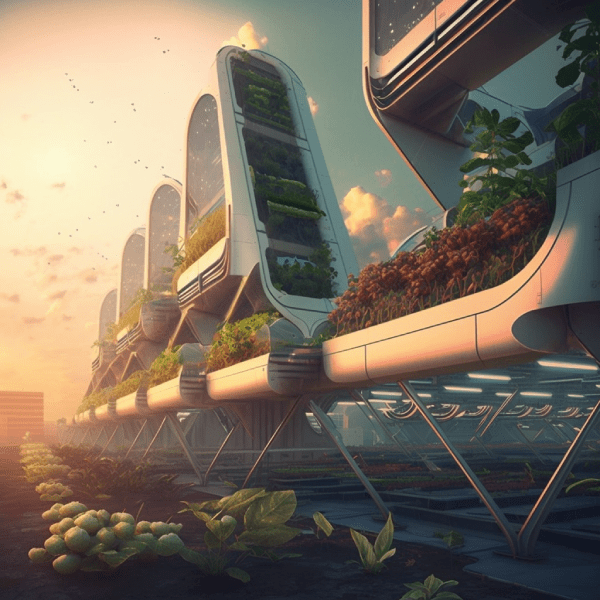Creating a sustainable city is becoming increasingly important as the world population continues to grow and resources become more scarce. A sustainable city is one that meets the needs of its citizens while also preserving the environment for future generations. In this blog post, we will explore the characteristics and key features of a sustainable city.
People first
A sustainable city must prioritize the well-being of its citizens. This means creating an environment that is safe, healthy, and enjoyable to live in. To achieve this, a sustainable city must provide access to essential resources such as healthcare, education, and social services. Additionally, a sustainable city must promote a sense of community and encourage civic engagement.
Sustainable transportation
One of the biggest contributors to air pollution and greenhouse gas emissions is the use of cars. A sustainable city must make it easy for its citizens to get around without a car. This can be achieved through the development of public transportation systems, such as buses, trains, and light rails. Additionally, sustainable cities must promote active transportation options such as walking and cycling.
Electric vehicles charging stations
Electric vehicles (EVs) are becoming increasingly popular as people look for ways to reduce their carbon footprint. A sustainable city must support the adoption of EVs by providing ample charging stations throughout the city. This will encourage people to switch to electric vehicles, which will help reduce greenhouse gas emissions.
Access to green spaces
Access to public resources and green spaces is essential for the well-being of citizens and the environment. Sustainable cities must prioritize the development of public spaces such as parks, community gardens, and recreational areas. These spaces provide opportunities for people to connect with nature and enjoy the outdoors.
Water and waste management
Water conservation and waste management are critical components of a sustainable city. Sustainable cities must prioritize the development of water conservation programs and infrastructure such as rainwater harvesting systems and greywater recycling systems. Additionally, sustainable cities must implement effective waste management practices, including recycling programs and composting.
Urban farming
Urban farming is a great way to promote sustainable living and local food production. Sustainable cities must support the development of urban farming initiatives by providing access to land and resources for community gardens and urban farms. This will encourage people to grow their own food, reduce their carbon footprint, and promote sustainable living.
Clean energy
Renewable energy is essential for reducing greenhouse gas emissions and promoting a sustainable future. Sustainable cities must prioritize the development of renewable energy infrastructure such as solar panels, wind turbines, and geothermal systems. This will help reduce the city’s reliance on fossil fuels and promote clean energy production.
Green architecture
Green architecture is the practice of designing buildings that are energy-efficient and environmentally sustainable. Sustainable cities must prioritize the development of green buildings, including the retrofitting of existing buildings to make them more energy-efficient. This will help reduce the city’s carbon footprint and promote sustainable living.
Conclusion
A sustainable city is one that prioritizes the well-being of its citizens and the environment. To achieve this, sustainable cities must implement key features such as public transportation systems, access to green spaces, water conservation and waste management, renewable energy, and green architecture. By prioritizing these features, cities can promote sustainable living and create a better future for generations to come.
10 most sustainable cities in the world, according to the 2021 Sustainable Cities Index by Arcadis:
- Zurich, Switzerland: Zurich ranks as the most sustainable city in the world due to its strong focus on environmental policies, public transportation, and waste management. In 2020, Zurich achieved a recycling rate of 53%, with 91% of all waste being reused or recycled.
- Singapore: Singapore has made significant progress towards sustainability in recent years by prioritizing clean energy, water management, and green spaces. The city-state has set a target to increase solar energy production to 2 gigawatt-peak (GWp) by 2030, and has implemented a comprehensive water management system that includes desalination and water reuse.
- Stockholm, Sweden: Stockholm is known for its innovative approach to sustainability, with a focus on sustainable transportation, waste management, and energy-efficient buildings. The city aims to become fossil fuel-free by 2040 and has already reduced carbon emissions by 58% since 1990.
- Vienna, Austria: Vienna is known for its strong commitment to sustainability, with a focus on green energy, public transportation, and green spaces. In 2020, Vienna was named the world’s most liveable city for the second year in a row, due to its high quality of life and low levels of pollution.
- Munich, Germany: Munich is a leader in sustainable transportation and energy-efficient buildings, with a goal to be 100% reliant on renewable energy by 2025. The city also boasts an extensive public transportation system, with 38% of trips made by public transport in 2019.
- Berlin, Germany: Berlin has made significant progress towards sustainability in recent years, with a focus on renewable energy, waste management, and public transportation. In 2020, the city set a goal to reduce carbon emissions by 60% by 2030 and has already achieved a recycling rate of 48%.
- Melbourne, Australia: Melbourne is known for its sustainable infrastructure, including a comprehensive public transportation system and an extensive network of bike lanes. The city has set a target to achieve net-zero carbon emissions by 2050 and has already reduced emissions by 31% since 2011.
- Sydney, Australia: Sydney is a leader in sustainable transportation, with a comprehensive public transportation system that includes buses, trains, and ferries. The city also has a strong focus on green spaces, with more than 400 parks and reserves.
- Helsinki, Finland: Helsinki is known for its commitment to sustainability, with a focus on renewable energy, sustainable transportation, and green spaces. The city aims to become carbon neutral by 2035 and has already reduced carbon emissions by 34% since 1990.
- Vancouver, Canada: Vancouver is a leader in sustainable urban planning, with a focus on green buildings, public transportation, and waste reduction. The city has set a target to reduce carbon emissions by 50% by 2030 and has already achieved a recycling rate of 62%.
Overall, these 10 cities have made significant progress towards sustainability by prioritizing renewable energy, sustainable transportation, waste reduction, and green spaces. They serve as examples for other cities around the world to follow in the quest for a more sustainable future.



